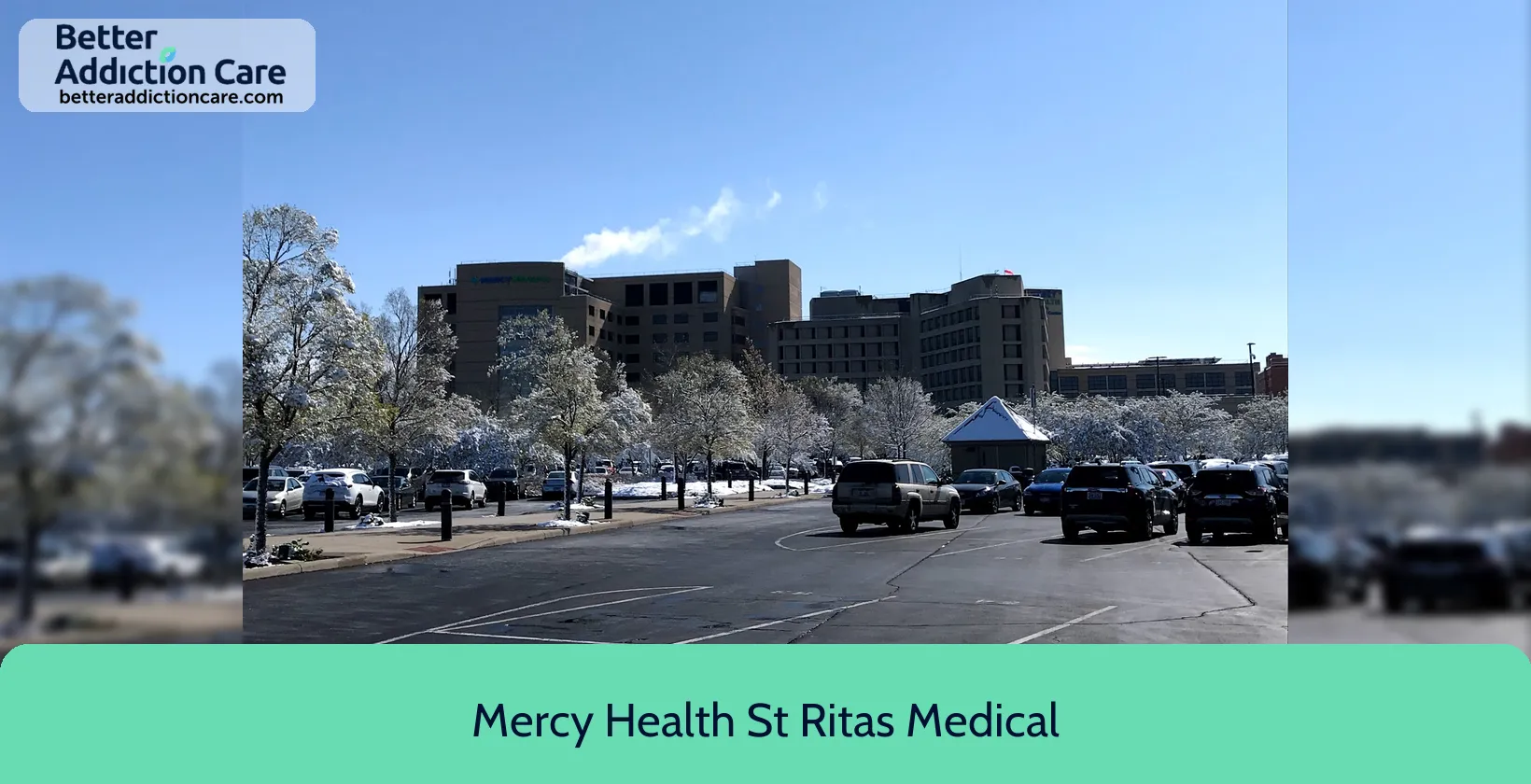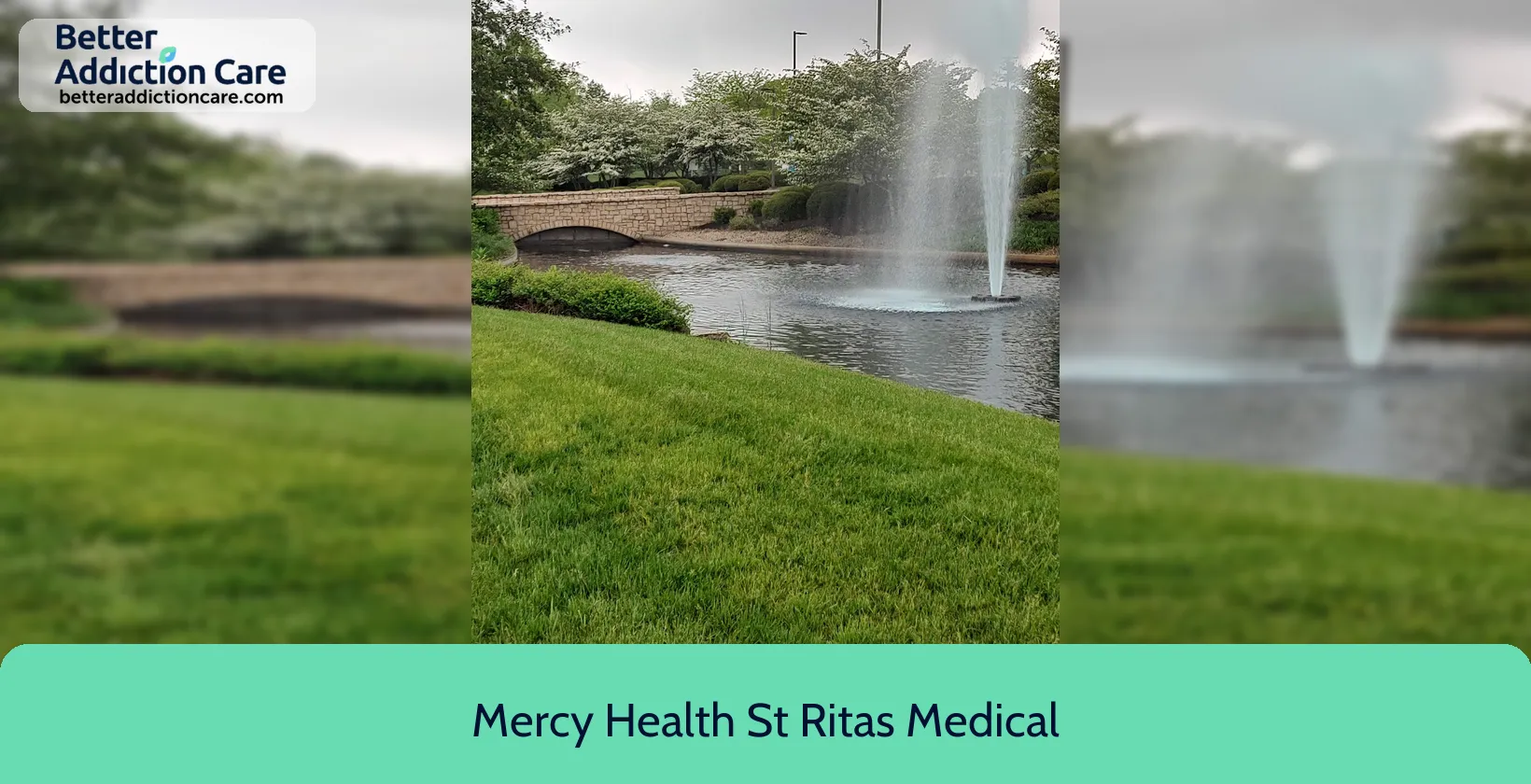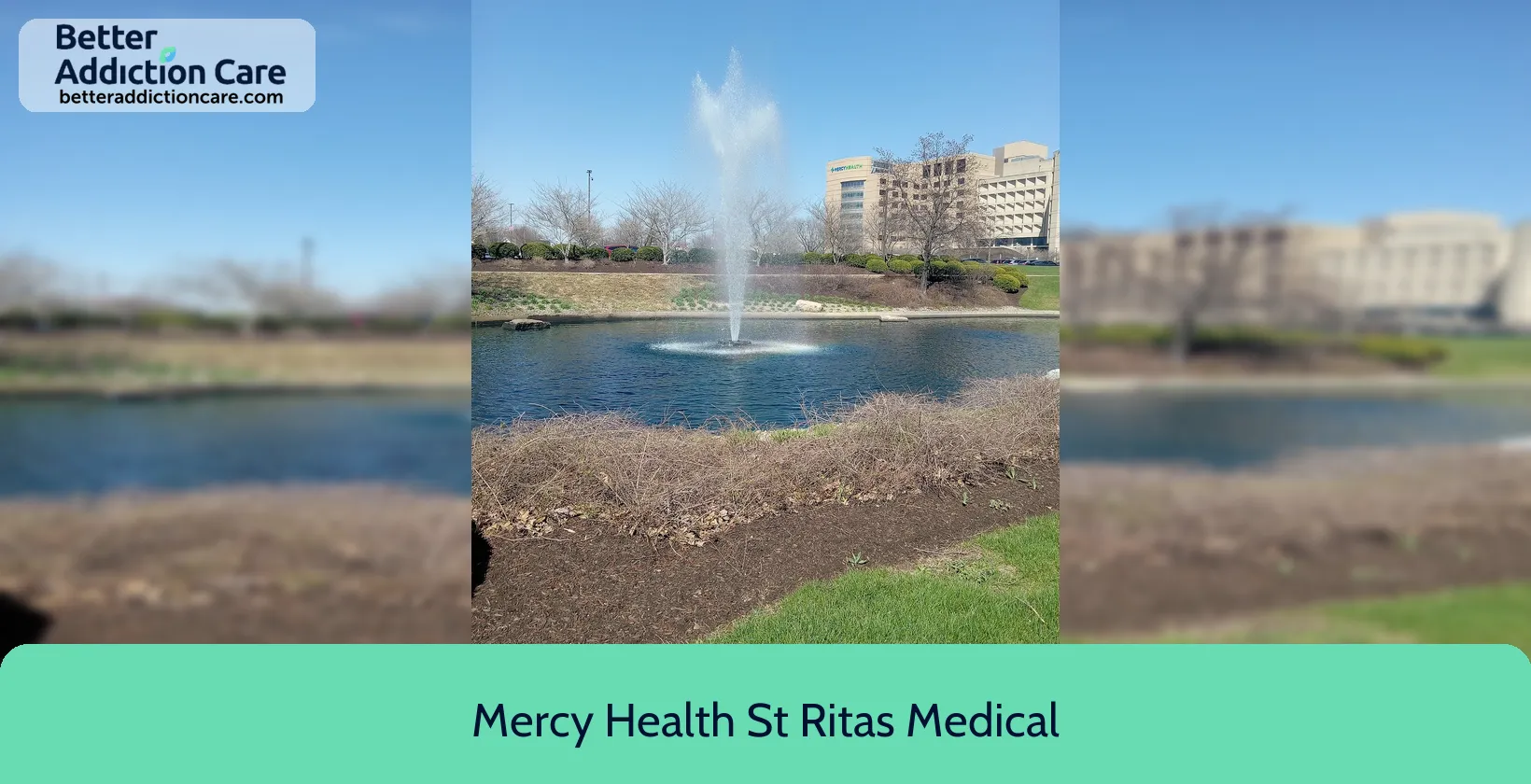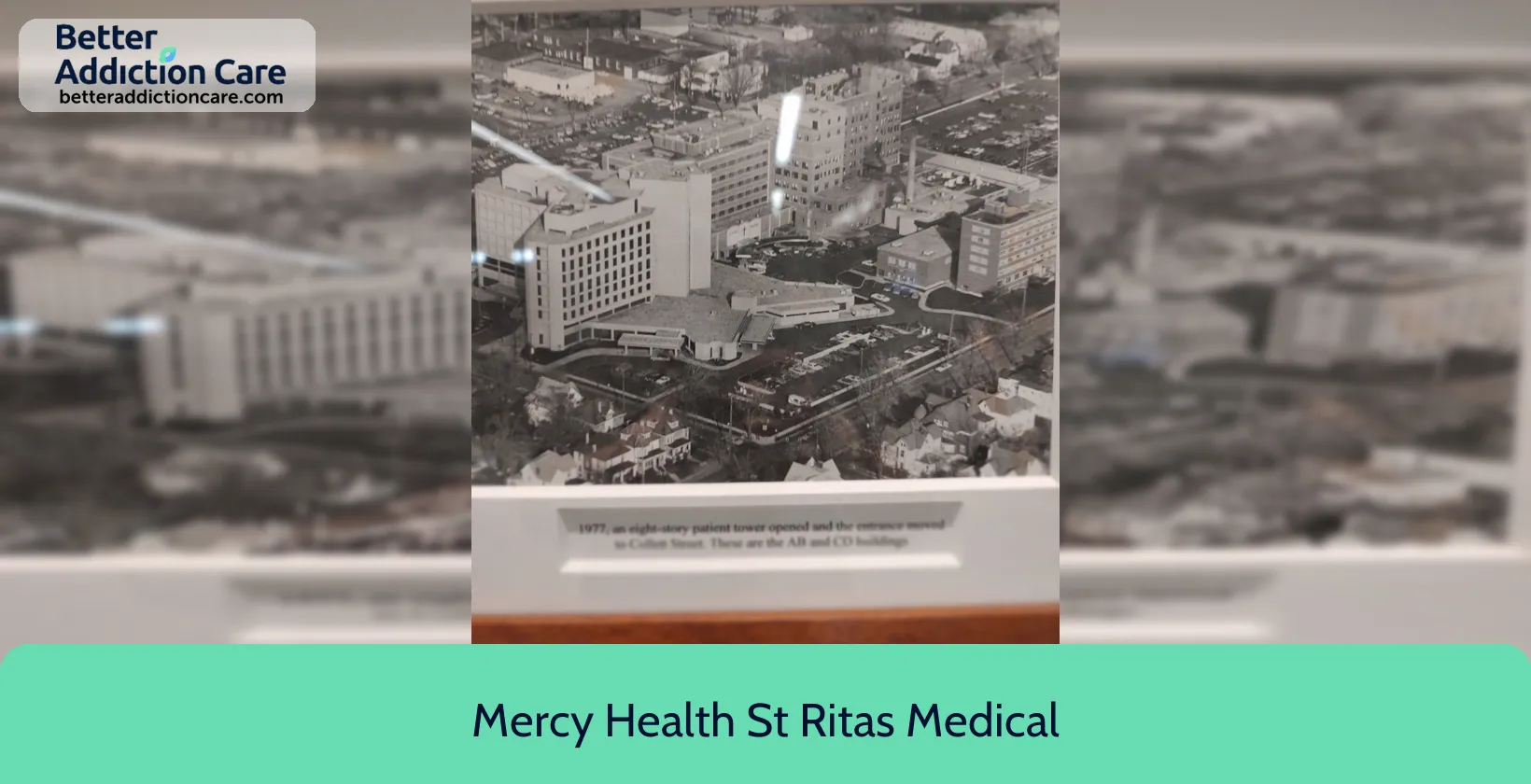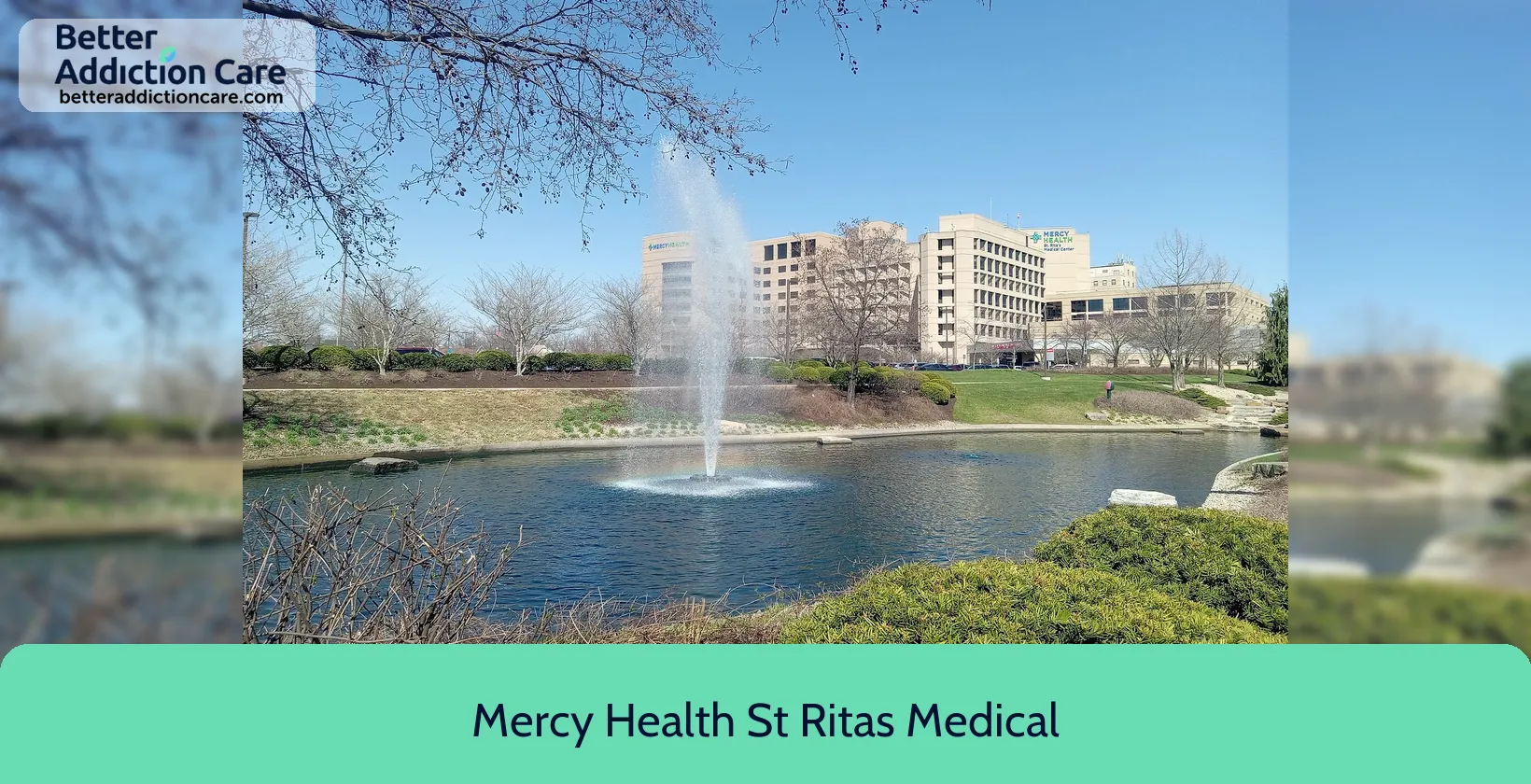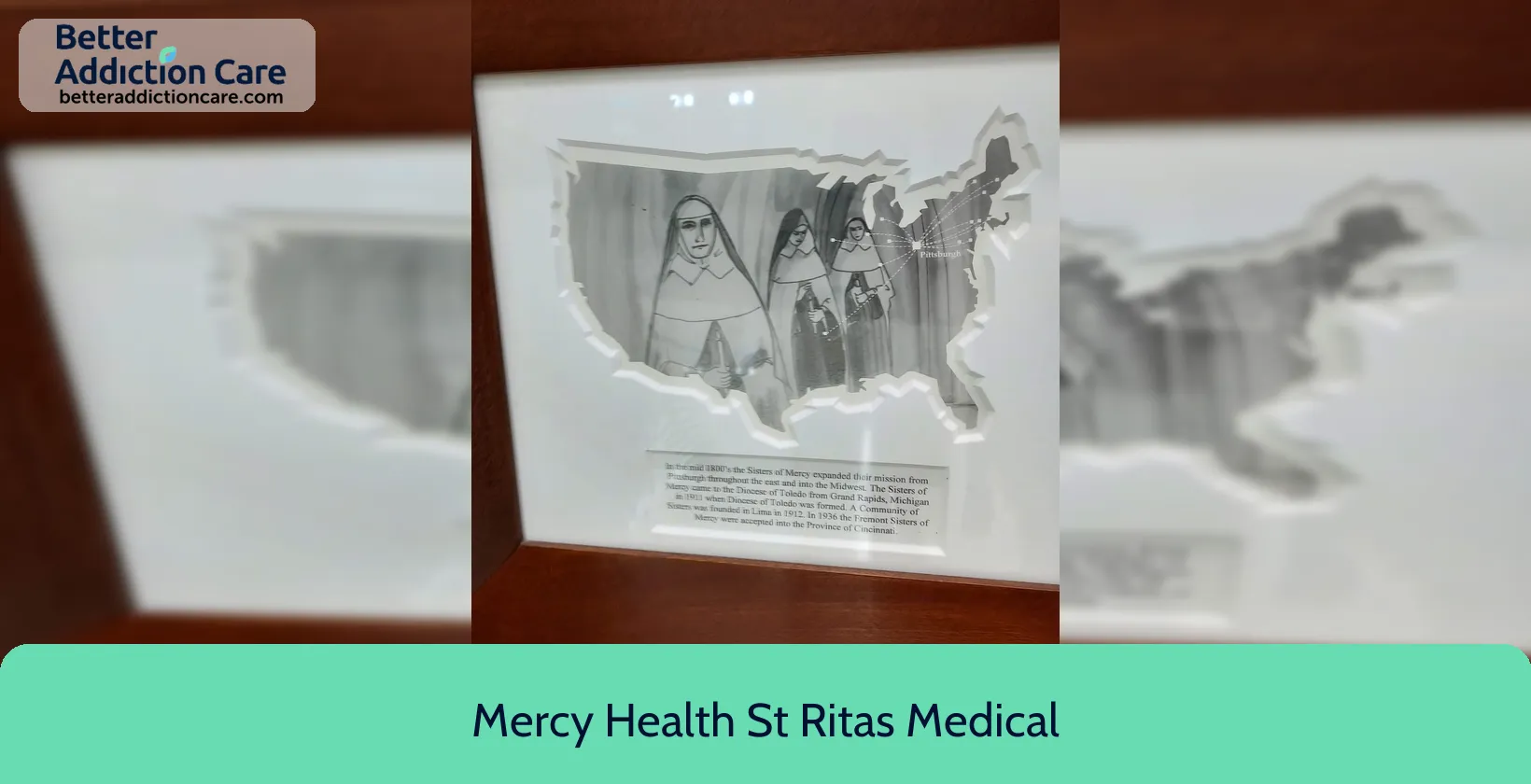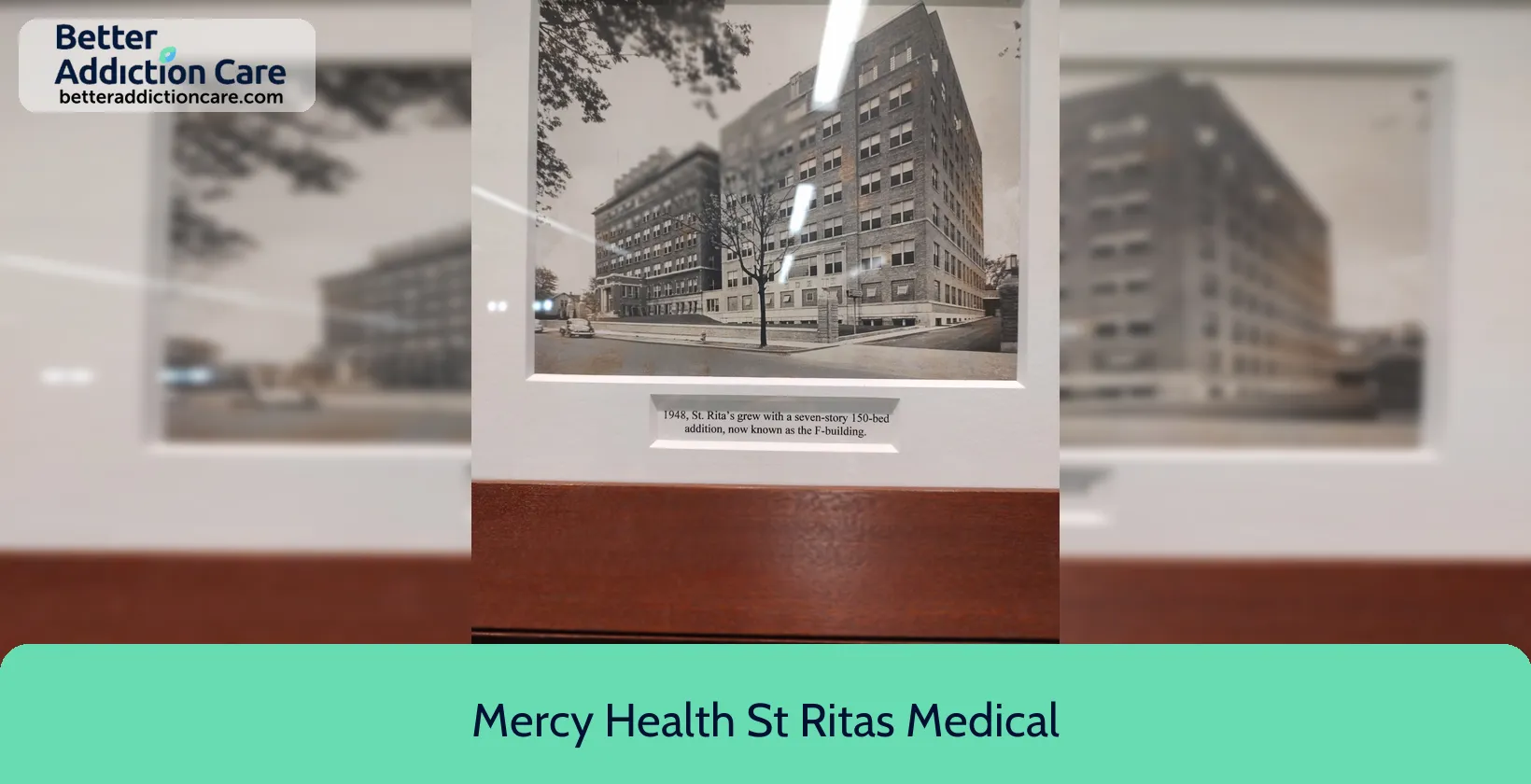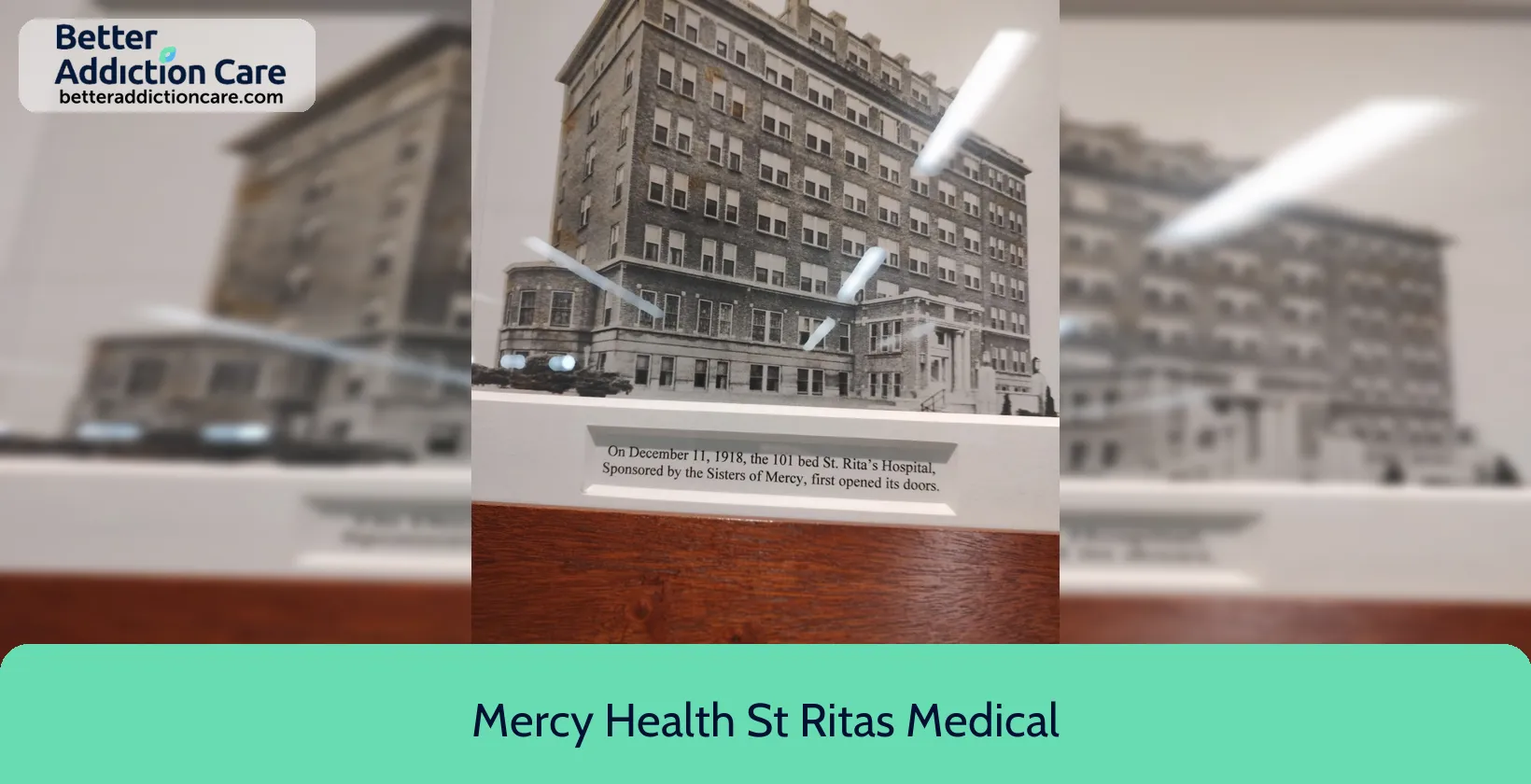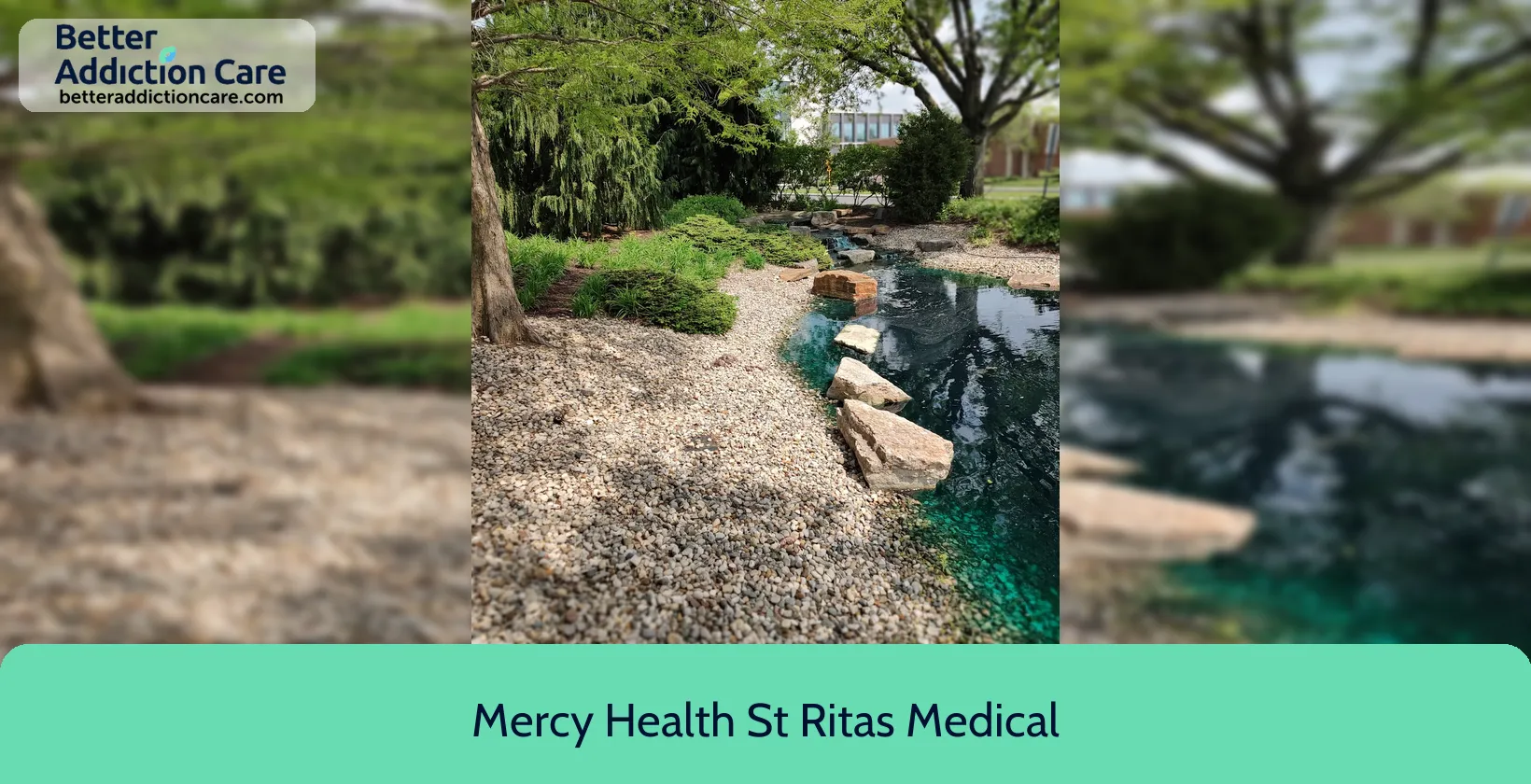Overview
Mercy Health St Ritas Medical Center - Behavioral Services is a mental health treatment center for people seeking treatment near Allen County. As part of their treatment modalities for recovery, Mercy Health St Ritas Medical Center - Behavioral Services provides couples/family therapy, group counseling, and cognitive behavioral therapy during treatment. Mercy Health St Ritas Medical Center - Behavioral Services is located in Lima, Ohio, accepting cash or self-payment for treatment.
Mercy Health St Ritas Medical Center - Behavioral Services at a Glance
Payment Options
- Cash or self-payment
- Medicaid
- Medicare
- State-financed health insurance plan other than Medicaid
- Private health insurance
Assessments
- Screening for tobacco use
- Comprehensive mental health assessment
- Comprehensive substance use assessment
Age Groups
- Young adults
- Adults
- Seniors
Ancillary Services
- Intensive case management
- Case management service
- Chronic disease/illness management
- Court-ordered outpatient treatment
- Diet and exercise counseling
Highlights About Mercy Health St Ritas Medical Center - Behavioral Services
6.71/10
With an overall rating of 6.71/10, this facility has following balanced range of services. Alcohol Rehabilitation: 8.00/10, Drug Rehab and Detox: 6.00/10, Insurance and Payments: 6.00/10, Treatment Options: 6.85/10.-
Alcohol Rehabilitation 8.00
-
Treatment Options 6.85
-
Drug Rehab and Detox 6.00
-
Insurance and Payments 6.00
Treatment At Mercy Health St Ritas Medical Center - Behavioral Services
Treatment Conditions
- Alcoholism
- Mental health treatment
- Substance use treatment
- Co-occurring Disorders
Care Levels
- Hospital inpatient/24-hour hospital inpatient
- Partial Hospitalization Program
- Outpatient
Treatment Modalities
- Couples/family therapy
- Group counseling
- Cognitive behavioral therapy
- Integrated Mental and Substance Use Disorder treatment
- Activity therapy
Ancillary Services
Languages
- Sign language services for the deaf and hard of hearing
Additional Services
- Pharmacotherapies administered during treatment
- Mentoring/peer support
- HIV testing
Special Programs
- Clients with co-occurring mental and substance use disorders
- Persons 18 and older with serious mental illness (SMI)
Get Help Now
Common Questions About Mercy Health St Ritas Medical Center - Behavioral Services
Contact Information
Other Facilities in Lima

6.68

6.56

7.19

6.68

6.62

6.76
DISCLAIMER: The facility name, logo and brand are the property and registered trademarks of Family Resource Center of Northwest Ohio, and are being used for identification and informational purposes only. Use of these names, logos and brands shall not imply endorsement. BetterAddictionCare.com is not affiliated with or sponsored by Family Resource Center of Northwest Ohio.
